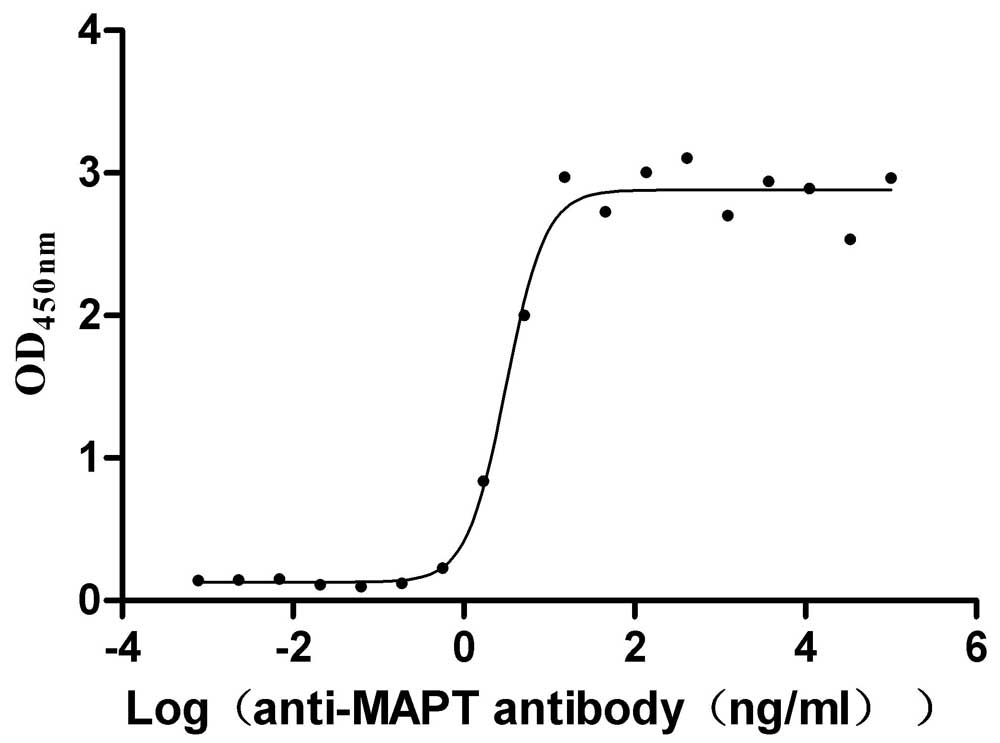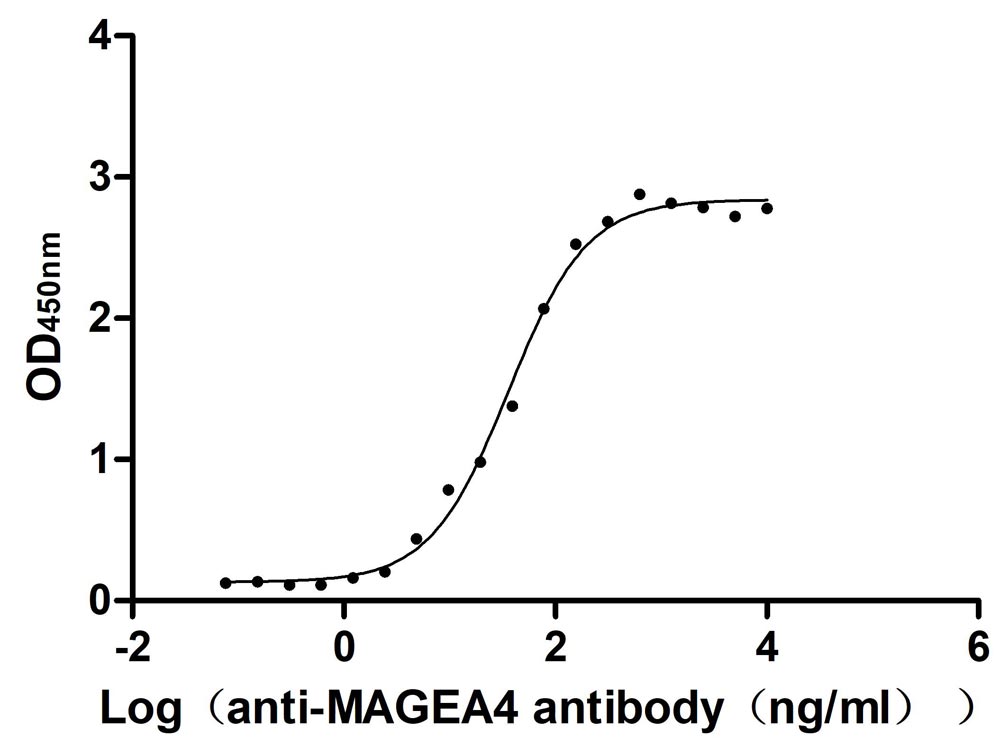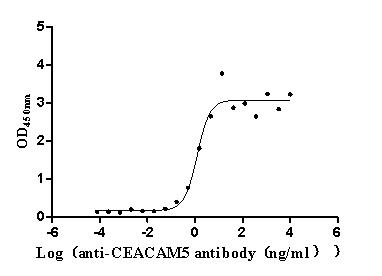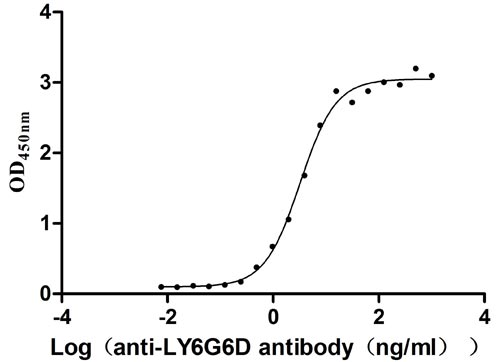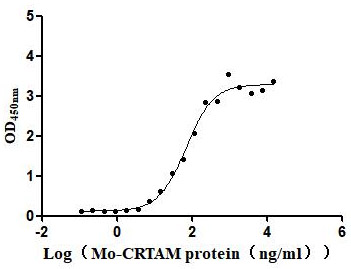Recombinant Mouse Pyruvate kinase PKM (Pkm)
In Stock-
货号:CSB-BP018072MO
-
规格:¥3168
-
图片:
-
其他:
产品详情
-
纯度:Greater than 90% as determined by SDS-PAGE.
-
基因名:
-
Uniprot No.:
-
别名:Pkm; Pk3; Pkm2; PykmPyruvate kinase PKM; EC 2.7.1.40; Pyruvate kinase muscle isozyme
-
种属:Mus musculus (Mouse)
-
蛋白长度:Full Length
-
来源:Baculovirus
-
分子量:61.8 kDa
-
表达区域:1-531aa
-
氨基酸序列MPKPHSEAGTAFIQTQQLHAAMADTFLEHMCRLDIDSAPITARNTGIICTIGPASRSVEMLKEMIKSGMNVARLNFSHGTHEYHAETIKNVREATESFASDPILYRPVAVALDTKGPEIRTGLIKGSGTAEVELKKGATLKITLDNAYMEKCDENILWLDYKNICKVVEVGSKIYVDDGLISLQVKEKGADFLVTEVENGGSLGSKKGVNLPGAAVDLPAVSEKDIQDLKFGVEQDVDMVFASFIRKAADVHEVRKVLGEKGKNIKIISKIENHEGVRRFDEILEASDGIMVARGDLGIEIPAEKVFLAQKMMIGRCNRAGKPVICATQMLESMIKKPRPTRAEGSDVANAVLDGADCIMLSGETAKGDYPLEAVRMQHLIAREAEAAIYHLQLFEELRRLAPITSDPTEAAAVGAVEASFKCCSGAIIVLTKSGRSAHQVARYRPRAPIIAVTRNPQTARQAHLYRGIFPVLCKDAVLNAWAEDVDLRVNLAMDVGKARGFFKKGDVVIVLTGWRPGSGFTNTMRVVPVP
Note: The complete sequence including tag sequence, target protein sequence and linker sequence could be provided upon request. -
蛋白标签:N-terminal 10xHis-tagged and C-terminal Myc-tagged
-
产品提供形式:Liquid or Lyophilized powder
Note: We will preferentially ship the format that we have in stock, however, if you have any special requirement for the format, please remark your requirement when placing the order, we will prepare according to your demand. -
缓冲液:Tris-based buffer,50% glycerol
-
储存条件:Store at -20°C/-80°C upon receipt, aliquoting is necessary for mutiple use. Avoid repeated freeze-thaw cycles.
-
保质期:The shelf life is related to many factors, storage state, buffer ingredients, storage temperature and the stability of the protein itself.
Generally, the shelf life of liquid form is 6 months at -20°C/-80°C. The shelf life of lyophilized form is 12 months at -20°C/-80°C. -
货期:3-7 business days
-
注意事项:Repeated freezing and thawing is not recommended. Store working aliquots at 4°C for up to one week.
-
Datasheet & COA:Please contact us to get it.
相关产品
靶点详情
-
功能:Glycolytic enzyme that catalyzes the transfer of a phosphoryl group from phosphoenolpyruvate (PEP) to ADP, generating ATP. The ratio between the highly active tetrameric form and nearly inactive dimeric form determines whether glucose carbons are channeled to biosynthetic processes or used for glycolytic ATP production. The transition between the 2 forms contributes to the control of glycolysis and is important for tumor cell proliferation and survival. In addition to its role in glycolysis, also regulates transcription. Stimulates POU5F1-mediated transcriptional activation. Promotes in a STAT1-dependent manner, the expression of the immune checkpoint protein CD274 in ARNTL/BMAL1-deficient macrophages. Also acts as a translation regulator for a subset of mRNAs, independently of its pyruvate kinase activity: associates with subpools of endoplasmic reticulum-associated ribosomes, binds directly to the mRNAs translated at the endoplasmic reticulum and promotes translation of these endoplasmic reticulum-destined mRNAs. Plays a general role in caspase independent cell death of tumor cells.
-
基因功能参考文献:
- PKM2 promotes tumor cell exosome release via phosphorylating protein SNAP23. PMID: 28067230
- PKM1 interacts with A-Raf, an upstream regulator of the MEK/ERK pathway, and that this interaction contributes to MEK1 phosphorylation by A-Raf. PMID: 28743549
- infiltrated/activated neutrophils at wound site release pyruvate kinase M2 (PKM2) by its secretive mechanisms during early stages of wound repair; the released extracellular PKM2 facilitates early wound healing by promoting angiogenesis at wound site PMID: 26808610
- The results suggested that targeting PKM2 with an oncolytic adenovirus produced a strong antitumor effect. PMID: 28569774
- PKM2 activation may protect against DN by increasing glucose metabolic flux, inhibiting the production of toxic glucose metabolites and inducing mitochondrial biogenesis to restore mitochondrial function. PMID: 28436957
- our results demonstrate that PKM2 is required to support metabolic reprogramming for homocysteine-induced B cell activation and function PMID: 27903739
- Jmjd8 is upregulated during endothelial differentiation and regulates endothelial sprouting and metabolism by interacting with pyruvate kinase M2. PMID: 27199445
- this study identifies a new signaling pathway for CD43 through the regulation of alternative functions of pyruvate kinase isoform M2, favoring cell survival following activation PMID: 27606486
- results show that the Aha1-Hsp90-PKM2/HIF-1alpha axis mediates the induction of aromatase in Li-Fraumeni Syndrome. PMID: 27467582
- in addition to its role in cancer metabolism, PKM2 plays a role in controlling systemic metabolic homeostasis and inflammation, thereby preventing hepatocellular carcinoma by a non-cell-autonomous mechanism. PMID: 27125672
- Evidence That Does Not Support Pyruvate Kinase M2 (PKM2)-catalyzed Reaction as a Rate-limiting Step in Cancer Cell Glycolysis. PMID: 26917721
- PKM2 promotes cell proliferation and insulin secretion, and inhibits apoptosis in pancreatic beta cells via Wnt/CTNNB1 signaling. PMID: 26823761
- Using [(32)P]-phosphoenolpyruvate (PEP) we examine the direct substrates of PKM2 using recombinant enzyme and in vitro systems where PKM2 is genetically deleted. The findings argue against a role for PKM2 as a protein kinase. PMID: 26300261
- LPS-induced PKM2 enters into a complex with Hif-1alpha, which can directly bind to the IL-1beta promoter, an event that is inhibited by activation of PKM2. PMID: 25565206
- observed a shift in the enzyme pyruvate kinase from the adult M1 (PKM1) isoform to the fetal M2 (PKM2) isoform, a hallmark of the Warburg Effect, in the heart after sunitinib treatment PMID: 25735978
- Muller glia compensate for their unique metabolic adaptations by using lactate and aspartate from neurons as surrogates for their missing PK and AGC1. PMID: 25313047
- PKM1 expression promotes a metabolic state that is unable to support DNA synthesis and cell proliferation. PMID: 25482511
- Up-regulation of PKM2 might protect intestinal epithelial cells against apoptosis possibly through Bcl-xl in Crohn's disease. PMID: 24817408
- This study provides the first evidence linking natural mutations in PKM2 with cancer. PMID: 24492614
- Our data reveal a complex interaction between STAT6 and PPARgamma in the regulation of liver and adipose tissue lipid depot distribution and design STAT6 as a novel link between inflammatory cell metabolism and adipocyte and hepatocyte function. PMID: 23917405
- PKM2 activity in beta-cells is oscillatory and are consistent with pulsatile PFK1 being the mediator of slow glycolytic oscillations. PMID: 24100037
- These data suggest that regulation of pyruvate kinase M2 isoform activity supports the different metabolic requirements of proliferating and nonproliferating tumor cells. PMID: 24120138
- PKM2 expression induces changes in type 1 fibers associated with muscle atrophy and muscle weakness in myotonic dystrophy type 1. PMID: 23901116
- PPARgamma contributes to PKM2 and HK2 expression in fatty liver PMID: 22334075
- Components of the mTOR/HIF1alpha/Myc-hnRNPs/PKM2 glycolysis signaling network could be targeted for the treatment of cancer caused by an aberrant RTK/PI3K/AKT/mTOR signaling pathway PMID: 21325052
- histidine-phosphorylated PGAM1 correlated with expression of PKM2 in cancer cell lines; decreased pyruvate kinase activity in PKM2-expressing cells allows PEP-dependent histidine phosphorylation of PGAM1 and may provide an alternate glycolytic pathway PMID: 20847263
- splicing repressors hnRNP A1 and A2, as well as the polypyrimidine-tract-binding protein PTB, contribute to control of pyruvate kinase isoform M1 and M2 expression PMID: 20133837
- Findings suggest that tyrosine phosphorylation regulates PKM2 to provide a metabolic advantage to tumor cells, thereby promoting tumor growth. PMID: 19920251
- study showed IL-3-induced nuclear translocation of the M2 isoform of pyruvate kinase (M2-PK) and examined its significance in cell proliferation [pyruvate kinase M2 isoform] PMID: 17446165
- results demonstrate that M2 expression is necessary for aerobic glycolysis and that this metabolic phenotype provides a selective growth advantage for tumour cells in vivo PMID: 18337823
- These findings suggest that M2 pyruvate kinase is a metabolic sensor which regulates cell proliferation, cell growth and apoptotic cell death in a glucose supply-dependent manner. PMID: 19563799
显示更多
收起更多
-
亚细胞定位:Cytoplasm. Nucleus.
-
蛋白家族:Pyruvate kinase family
-
组织特异性:Embryonic stem cells and embryonal carcinoma cells.
-
数据库链接:
KEGG: mmu:18746
STRING: 10090.ENSMUSP00000034834
UniGene: Mm.326167
Most popular with customers
-
Recombinant Human Tumor necrosis factor receptor superfamily member 14 (TNFRSF14), partial (Active)
Express system: Mammalian cell
Species: Homo sapiens (Human)
-
Recombinant Severe acute respiratory syndrome coronavirus 2 Spike glycoprotein (S), partial (Active)
Express system: Mammalian cell
Species: Severe acute respiratory syndrome coronavirus 2 (2019-nCoV) (SARS-CoV-2)
-
Recombinant Human Pro-neuregulin-1, membrane-bound isoform (NRG1), partial (Active)
Express system: Mammalian cell
Species: Homo sapiens (Human)
-
Recombinant Macaca mulatta Microtubule-associated protein tau (MAPT) (Active)
Express system: Mammalian cell
Species: Macaca mulatta (Rhesus macaque)
-
Recombinant Human Melanoma-associated antigen 4 (MAGEA4) (Active)
Express system: Mammalian cell
Species: Homo sapiens (Human)
-
Express system: Mammalian cell
Species: Homo sapiens (Human)
-
Recombinant Human Lymphocyte antigen 6 complex locus protein G6d (LY6G6D) (Active)
Express system: Yeast
Species: Homo sapiens (Human)
-
Recombinant Mouse Cell adhesion molecule 1 (Cadm1), partial (Active)
Express system: Mammalian cell
Species: Mus musculus (Mouse)

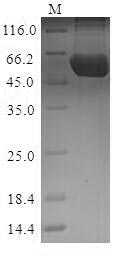


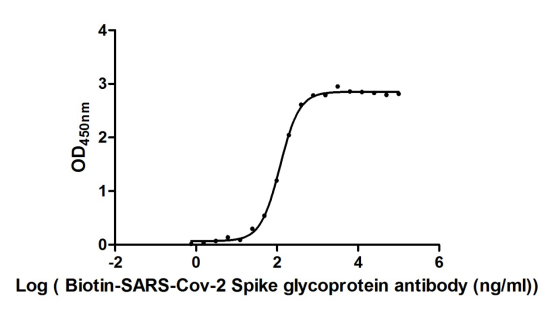
-AC1.jpg)
